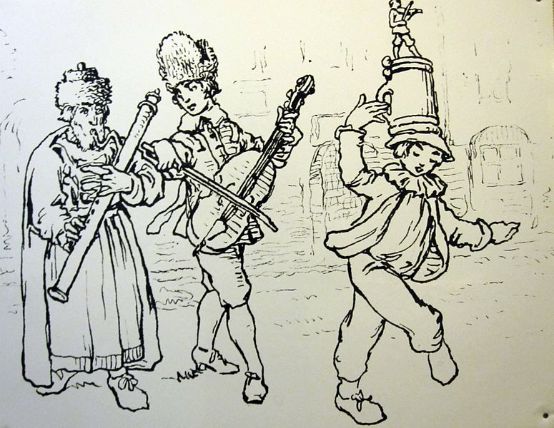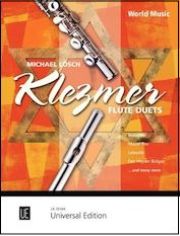Lively and lyrical duets
Michael Lötsch has arranged traditional klezmer pieces for two flutes and added a number of new compositions

This booklet for two flutes, published in the World Music series, contains a collection of well-known pieces from the klezmer literature, arranged by the editor Michael Lötsch, as well as original compositions. The term klezmer comes from the Hebrew and originally referred to the musicians. Today, klezmer is mainly understood as instrumental music, the repertoire of which consists primarily of pieces to accompany weddings and other celebrations. The melodies, which, as Michael Lötsch describes in the foreword, "convey melancholy and exuberance at the same time", are extremely varied in their style and therefore also allow greater freedom in terms of tempo, phrasing and interpretation.
Klezmeron is a familiar melody in D minor, which then turns to a brighter F major part and returns to the minor. Tish Nigun has a rather calm character and sounds very lyrical. Michael Lötsch's own compositions are hardly inferior to the originals. Revenge is a lively piece in which both voices are in thirds, which gives it a special tonal charm. The imaginative Klezmer Fantasy contains a concise theme, which is taken up again and again after intermediate parts. Seven Steps pulsates through its constant changes between 7/8 and 4/4 time.
The duets, in which the thematic material and the accompaniment are divided between the two parts, are largely in the middle to higher register, are easy to play for advanced flautists and are also suitable for teaching.
Klezmer Flute Duets, 13 pieces for two flutes arranged by Michael Lötsch, UE 33044, € 14.95, Universal Edition, Vienna 2017








